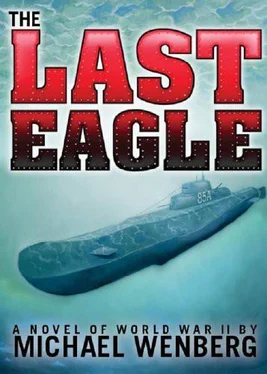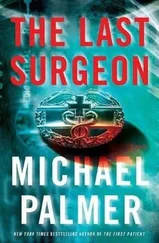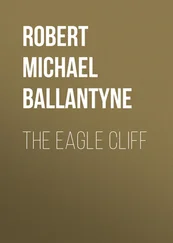“Surprise,” Stefan said uneasily. In response, the barrel of the deck gun began to drop toward the boat. “I don’t like this…,” he said. “I think it is time to….” He reached for the speaker tube, but Sieinski grabbed his arm.
“Do I need to remind you who is captain?” he said fiercely. And then to the gun crews, “Stand down. Barrels in the air.”
No weapons moved. Gazes flicked back and forth between the captain and Stefan. “Do it,” Sieinski bellowed. Still the hesitated. Finally, Stefan nodded, and then they obeyed.
The captain began dancing with anger. “I should have you hauled up on charges,” he shrieked, his eyes lit by a strange glow. “This is not over….”
Stefan was surprised at how calm he felt. He stared dispassionately at the madman before him. “Off course it isn’t,” he said evenly. “Prepare for lines,” Stefan said.
Sailors at the bow and stern of the motorboat flicked lines into the air. Like lizard tongues, Stefan thought. His crew pulled the motorboat close and then made the lines fast.
An older white-bearded man in black pants and coat, an English cap, scrambled over the motorboat’s gunwales and onto the deck of the Eagle , followed by the six armed sailors. He made his way to the bridge with two of the sailors, while the rest fanned out on the narrow wood covered deck of the Eagle .
“I tell my wife I will retire soon,” grumbled the old man in fluent Polish, as he flung his leg over the lip of the conning tower and dropped spryly onto the bridge deck. “I am getting too old to be climbing around like a monkey. I am Adolf,” he said with a giggle. “The harbor pilot, not the,uh, you know who….”
Sieinski reached forward, grasped the pilot’s hand and shook it. “Welcome aboard the Eagle ,” he said hurriedly, already fully recovered from his previous outburst. “I’m Captain Sieinski. We’re here for repairs. I don’t understand all of this.”
Adolf eyed Sieinski’s forehead. “It is none of my business, of course. But what is your problem?”
“Hydraulic pump,” Stefan said.
“Easy enough to fix,” Adolf said with a shrug. “Now to business. You’ve been given permission to enter port. That is why I am here. If you run aground, it will be my fault, you see, not yours. As for these others”—he flicked his hands dismissively toward the armed sailors on the deck— “and that”—he gestured toward the cruiser approaching from behind—“they are here for my,uh, protection.”
Stefan covered the smile on his face with his hand.
“My feelings exactly, young man,” Adolf said. “And you’re….”
“Stefan. I’m the XO.”
“Very well, Stefan. So, what will it be, gentlemen. Do I get to go home and finish my tea, or do I get the opportunity to bring this wonderful vessel into Tallinn harbor?”
“It’s all yours, sir,” Sieinski said.
“Very well.”
Adolf waved from the conning tower. “Cast off the lines,” he yelled. He picked up the sound tube. “Do you mind?”
“Be my guest.”
“Both engines. Ahead half speed,” he said. “Yes, wonderful boat. Dutch, isn’t she?”
Andrus Kalm, admiral of the Estonian fleet, adjusted the sleeves of his uniform, and then plucked a piece of lint from the front of his jacket. He would need to scold his maid. Stupid Jew. She was supposed to make sure his uniforms were perfectly clean, and yet, for the second day in a row, he had been distracted in a meeting by lint on his jacket. This would not do. Perhaps it was time to find someone else, someone with a sharper eye? And given the present political climate, it wouldn’t hurt to have someone with a more palatable ethnic background in his service either.
Kalm cleared his throat, brushed his mustache, kept black as a Halloween cat courtesy of a dye used by his barber, and then continued in Polish. “Ah, yes, where was I. Damn unfortunate, this war, if you ask me. Complicates everything, you know. More rules and regulations.”
The admiral was safe behind a large rosewood desk, a memento from some long-forgotten trip to Asia. He didn’t stare at the three Polish officers in the chairs opposite him as he rambled along but gazed out the window of his harbor office at the steeples and turrets of medieval Tallinn. Though avoiding eye contact was a habit he had developed long ago as a young boy, when any direct gaze brought instance retribution from his abusive father, if truth be told, he did find the presence of these officers unsettling, almost insulting. It was easier not to look at them. His men knew better than to approach him without first making sure they were presentable. If any of them had looked like these three, they would have found themselves cleaning toilets in the bowels of a 50-year-old rust bucket before they had a chance to squeak an objection.
Of course, Kalm had to admit the captain, Sieinski was his name, wasn’t dressed poorly. He just looked awful. Sick. Sweat poured from his face like an overworked field hand. Dark circles already stained his uniform beneath each arm. And the bruise on his forehead, a mustard yellow with streaks of purple, looked like the artwork of an undisciplined child. And the other one, the executive officer. Dressed like a garbage man, and smelling the part. Kalm knew that submariners were not held to the high standards of surface crew in terms of hygiene and dress because of the constraints of the vessels upon which they served. But this hulk of a man was ridiculous. Filthy clothes. Red-rimmed eyes. Scraggy beard and hair. It was an insult. And finally, the Polish naval attaché stationed at the Polish embassy. This man had no excuse. He knew protocol and common decency. Kalm glanced at the man’s hands folded neatly on his lap, and then returned his gaze to the window. He had already apologized. Said he was working in his garden. At the very least, he should have had time to clean his fingernails during the drive here, or better yet, he should have worn gloves when he was working.
All this talk of rules reminded Kalm of how it had been when he was a young ensign. Recounting past deeds always made him feel better. He took a deep breath and jumped into an account of the time he had spent a few months on the Austro-Hungarian battleship Maria Theresia , cruising in the Mediterranean in 1902.
Sieinski was only half listening to the Estonian admiral, a puffed up mushroom of a man who should have been retired before the last war, he thought. Hard to keep a thought in his mind when there was a car already waiting for him outside the building. He wasn’t sure how much longer he could hold out. He’d managed a phone call to family friends before the meeting, and once past the usual pleasantries, asked for the number of a local physician who could be trusted. As soon as this meeting was over, Sieinski was going directly there.
Sieinski watched the admiral open his mouth, say a few words to the buildings outside, and then pause. Sieinski gave a bland smile he hoped was appropriate. Hurry up you old shit, he thought.
Stefan had stayed silent during the admiral’s prattle, too tired to care about Sieinski’s growing discomfort, wondering if anyone would notice if he took a little snooze. The chair he was sitting in was a delight. Big enough for his frame, soft cushion. In a pinch, it would do as a wonderful substitute for a bed. That alone was reason for extending this meeting. If he could just take off his boots. Then it would be perfect. But he knew the smell that would result from that act would clear the room and outrage the admiral even more than he was already. It was clear that something was bothering the old man, or else the collar that grasped his beefy neck like the hands of a strangler was too tight. Stefan glanced down at his clothes. Compared to the other two men, he looked like a vagabond. He should have changed, but at the time, it didn’t seem that important. He had on a salt-stained jacket and the same pants and boots he had been wearing when the Eagle left Gdynia. The only thing different, he was wearing a new cap. He preferred his old one, but it would be poor manners to ask Kate to trade him. Besides, he liked the idea of her having something of his.
Читать дальше












